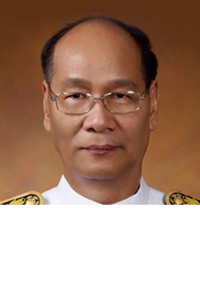
Most Thais live with the hope of a better future. Their hopes play a crucial role in promoting the well-being of citizens and society. When people hope, they are more likely to persevere in adversity and take steps to overcome obstacles to improve their lives. In other words, hope motivates them to pursue meaningful goals.
When individuals believe in a better future, they are more likely to take action to achieve their goals, whether those goals are personal, professional or related to their community. Hope can foster community, social cohesion and unity. People who hope for a better society are more inclined to work together to achieve their goals, and this cooperation leads to civic engagement and participation in the democratic process. When citizens believe their actions can make a difference, they are more likely to participate in citizen-led policy advocacy and to vote in elections.
Citizens' hopes can play a significant role in promoting national economic development in several ways. For example, hope can inspire individuals to take risks and pursue entrepreneurial opportunities. In addition, young people hoping for a better future are more motivated to pursue higher education, vocational training and continuous learning. This leads to a more skilled and productive workforce and enhances the country's competitiveness and economic performance.
As citizens' hope is a critical driver of economic development, the state and the national leaders must nourish citizens' hopes through various means, including providing quality education, economic opportunities, social support and fostering a sense of community and inclusion. Governments, communities and individuals must work together to create an environment where hope can flourish, ultimately leading to a more prosperous and resilient society. They must harness the power of citizens' hopes for economic growth and national prosperity by advocating and implementing policies and initiatives that foster hope, such as investing in high-quality education skills development, supporting small and medium-sized enterprises and, more importantly, investing in locally-led economic development initiatives through and with local governments, which are in communities and closest to the people.
While doing all these is necessary, it may not be enough, simply because the power of citizens' hopes is constrained and undermined by certain politicians' greed, corruption, venality and decadence in tandem with some high-ranking bureaucrats. Due to corruption, cronyism and economic monopolies, Thailand incurs billions of baht in losses annually, resulting in ineffectiveness and inefficiency, thus preventing Thailand from moving forward and presenting little opportunity for social mobility among disadvantaged groups.
Rampant government and underground lottery buying used to be the primary indicators of despair within Thai society. However, following the 2014 coup, another sign of this society's hopelessness emerged. Its precursor was evident in the lyrics of "Return the Happiness to Thailand", which concluded with a pledge to bring about improvement and happiness to the nation. The military junta consistently promoted its "stability, prosperity and sustainability" motto through state-controlled media channels. Accompanied by mobile military-led musical bands, citizens were led into believing that their lives would be improved. It appeared accurate, especially for citizens in specific low-income brackets who received cash payments through four digital schemes: 1) the State Welfare Card, 2) the government's co-payment scheme, 3) We Travel Together and 4) Tasting, Shopping, and Spending. While there is no evidence to substantiate that these cash handouts and spending sprees have had a positive impact on economic growth, the current coalition government, led by the Pheu Thai Party, is planning to proceed with a similar initiative. This decision comes despite strong criticisms and warnings from leading Thai economic scholars about the ill effects it may generate. The government intends to distribute 10,000 baht in digital cash to all Thai citizens aged 16 and above.
The distribution of digital cash raises ethical governance concerns, as it can foster dependency, cultivate welfare addiction and contribute to public disillusionment when individuals do not actively work towards improving their future. Providing 10,000 baht in digital money can also raise unrealistic expectations among the citizens, eroding trust in the government's credibility and diminishing support from the electorates in the next general election, as evidenced by the previous government.
Ethical governance is founded on transparency, honesty and accountability. Governments are entrusted with the duty to furnish accurate information, set realistic expectations and provide the public with what is genuinely in their best interest to the best of their capabilities. Creating false hope can compromise these principles, harming the relationship between the government and citizens and breeding mistrust in the government's actions and intentions. Furthermore, when citizens observe politicians engaging in issues related to ethical governance, they may lose trust in the political system and their elected representatives. Therefore, it is essential to understand that building trust requires a long-term commitment to ethical governance.
Trust and confidence in a national leader are closely related. Trust refers to the citizens' belief in their leaders' integrity, honesty, competence and ability to formulate and implement policies with integrity, honesty, competence and ability to make decisions that are in the best interests of their country. Conversely, confidence is more about believing in our leaders' ability to manage and lead the country effectively.
The interconnectedness of citizens' hopes, trust in the national leaders and confidence in the government substantially influences the national economy. When citizens place their hopes in the current government, whatever government that may be, this optimism extends beyond just the citizenry; it also engenders investor confidence, driving heightened economic activity. In addition, trust in the government can cultivate stability and predictability in economic policies, attracting investment and bolstering economic growth. Conversely, a lack of trust or confidence can engender uncertainty, reduced investment and economic stagnation, underscoring the vital importance of these factors for fostering healthy national political and economic development and enhancing citizens' well-being.
